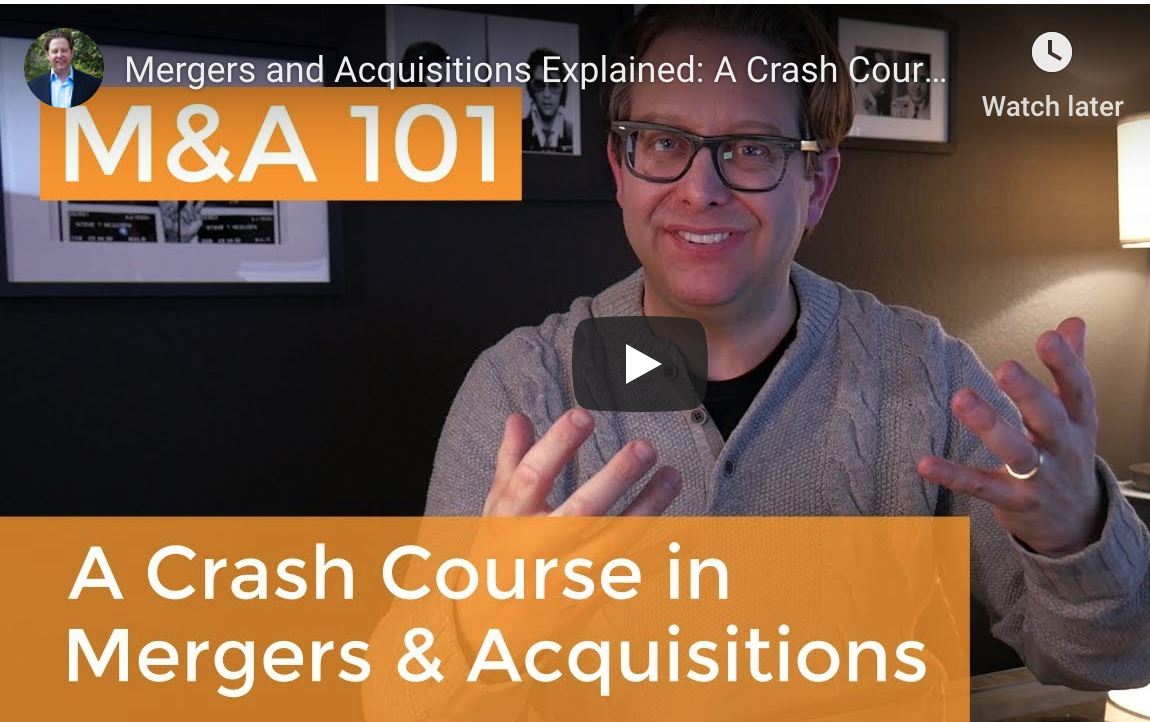Earnouts in M&A
Most sellers of businesses are reluctant to pursue earnouts. Many of these sellers think that they’ll earn less money with an earnout and earn that money later. Fortunately, by understanding the mechanics of an earnout, sellers can position themselves to sell quickly and make more money.
Purchase Price
The price offered for a business is known as the purchase price. There are many ways different for a seller to achieve the purchase price with the most common being cash, seller financing, stock, or some combination of the three.
The purchase price can be fixed, where the seller is compensated in more concrete amounts, or it can be variable where compensation is based on some other factor- this is where an earnout comes in.
Fixed vs. Variable
A fixed purchase price is static, it doesn’t change based on any performance metrics. If a business is sold for $2MM with a fixed purchase price, the buyer will owe the seller exactly $2MM.
A variable purchase price is subject to change. In the same deal as above, the two parties can agree on $1.5MM being owed to the seller at close with additional compensation occurring if the business performs in a specific way.
Earnout
In earnouts, compensation to the seller depends on the business hitting certain metrics. It’s variable, not fixed, because the compensation changes when the business achieves those metrics post-closing.
In the example above, the parties could agree that additional compensation in the form of employment income will occur if the business grosses $250K in sales within the first year post-closing. Some key performance metrics seen in earnouts are:
- SDE
- Revenue growth
- Customer retention
The earnout can be based on one or many of the metrics above. The parties can agree that post-closing compensation will be based on an annual revenue growth of five percent or it could be based on retaining the seller’s largest customer for two years.
That’s largely how earnouts work, but why do they occur?
Risky Business
Earnouts are fundamentally about sharing risk. Sellers want all of their compensation at the closing table, but buyers, who are assuming all of the risk post-closing, aren’t always happy with that.
A buyer can justify that a $2MM business is worth $1.5MM because it carries considerable risk. The business could depend on one large customer, a charismatic owner, or another underlying factor that fuels uncertainty in the eyes of the buyer.
Often times, the only way close a deal is with an earnout. It gives the buyer some peace of mind knowing that not all of their money is tied up in a risky business, and that the former owner has a vested interest in the business’s success post-closing.
Earn more money
Typical earnout provisions include the seller of the business receiving their additional post-closing compensation through employment income.
This means that the seller will earn the purchase price of the business after the business is technically sold. The purchase price could be higher since now the seller is assuming risk for the business similarly to the buyer.
The purchase price should not be the same as a fixed cash sale because the seller now assumes more risk– the seller should be compensated accordingly. In an active market, this means that the seller can ask more for their business.
Market Forces
If the business sits on the market for an extended period of time and there seems to be no interest, the seller could be forced to offer an earnout provision.
A stagnant listing could imply some underlying factor like risk, a poor economy, and an overall lack of interest for that specific listing.
A seller who is unable to sell within their desired time frame should take steps to incentivize potential buyers. An earnout could be a strong enough incentive for some buyers to explore, and ideally purchase a business.
Earnout Risks
With an earnout, if the business performs in a certain way under ownership of the buyer, the buyer will pay additional compensation to the seller. However, there is clear distinction between who owns the business and who’s operating it.
In a typical earnout the buyer will go with the business post-closing to assure its success. The seller will ideally continue in their role to help the business earn its purchase price, which is the seller’s post-closing compensation.
Who’s in control and how much control they have matters. The details of the earnout will include specifics on how much control is given to the buyer and the seller, which will heavily impact the success of the business.
Risks When Selling to an Individual
The single biggest risk factor is the seller not going with the business post-closing. The risk is simple, a seller has no idea how the business will perform without their guidance.
The new owner could have relevant industry experience but operating an unfamiliar business with unfamiliar staff and business partners is far from straightforward.
Risks When Selling to a Larger Business
Selling to a larger business carries more risks than selling to an individual. Typically, a small business bought by a larger business will just be an addition to the larger business’s portfolio.
The larger business could care less about the wants and needs of an individual seller and will always keep corporate needs ahead of individual needs. A larger business could:
- Chop the smaller business into multiple pieces
- Move the smaller business across the country
- Employ expensive staff and have the smaller business cover the cost
- Make the smaller business absorb corporate overhead
If the seller’s compensation is based on business performance, what happens when the buyer forces them to employ expensive staff and absorb corporate overhead?
These are just some of the risk factors when selling to a larger business and a seller should be aware of every potential risk factor that a larger buyer brings to the table.
Post-Closing Employment and Control
The earnout employment period is typically two years. In the employment agreement, a seller should be sure to negotiate that their employment agreement contains information covering:
- Premature termination
- Business expense protection
- Business control
Premature Termination
If a seller is terminated prematurely, there should be conditions in place that only allow the termination if the earnout is paid to the seller in its entirety. Additionally, there should be conditions in place to prohibit premature termination of the business for unjust reasons.
Business Expense Protection
Conditions should be in place to limit the amount of corporate expenses placed on the business. If a seller’s payout is determined by business performance, placing additional expenses on the business will hurt performance and limit the payout for the seller.
Business Control
The seller should negotiate terms that favor their control, since their compensation is based on some performance metric. If the owner is in control, they can make decision that will affect the seller’s personal compensation, without the seller having any say.
The seller should include provisions like, “To the extent the buyer takes an action that should reasonably be deemed as impeding, the seller has the ability to earn the earnouts owed.”
Down in the Weeds
The small details in an earnout provision will make the biggest difference in an earnouts success– especially for an individual seller. A seller should make sure they have all the control and protections they need for the business to satisfy the earnout conditions specified.
Earnouts don’t have to be a scary or uncomfortable option when selling a business. By understanding earnouts, sellers can have another valuable option that could sell their business more quickly and make them more money.

